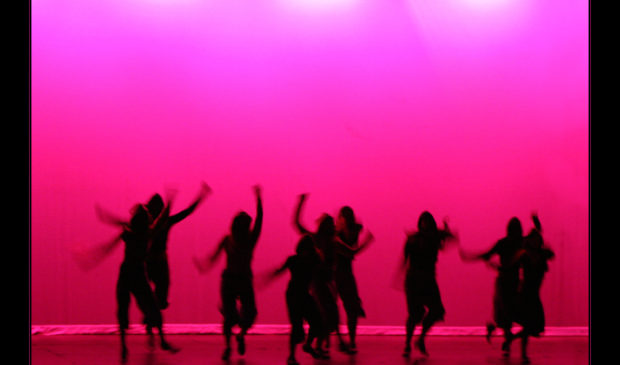Arts, music supporters eye bond money to assist existing creative spaces
Thursday, July 12, 2018 by
Chad Swiatecki Leaders in Austin’s arts community appear to be in favor of using $12 million in proposed bond money to help existing creative businesses in purchasing their current spaces before they can be priced out or forced to move because of redevelopment.
That was the focus of discussion at Monday’s meeting of the Austin Music Commission, the first since City Council voted last month on a preliminary amount for the fall bond election that includes $70 million for the city’s cultural centers and $12 million for the broadly defined creative space efforts. That amount is far less than the combined $40 million that the Music and Arts commissions had hoped to put in the bond, with $25 million proposed for a new creative arts campus and $15 million for a new music hub.
The reduced amount could change the focus of how the money is used if voters in November approve the total $925 million bond package, which would be the largest in city history.
Council is expected to vote in late August on the final size and composition of the bond package, leaving time for stakeholders in efforts such as affordable housing and creative space preservation to lobby Council members either for or against the amount of money in the six use “buckets” that make up the bond.
John Riedie, CEO of the Austin Creative Alliance, said during comment on the bond package that creation of a cultural land trust similar to those used in Pittsburgh and San Francisco would provide faster help to creative spaces such as Vortex theater, Austin School of Film and Mosaic Sound Collective in purchasing their properties.
Riedie’s proposal would direct at least some of the $12 million to the creation of a land trust organized by the city, with the money loaned to existing organizations and repaid by them to the trust which could recirculate those funds to more organizations seeking help with closing purchases.
“I was asked by Council Member (Ann) Kitchen to compile a list of eligible spaces, and that eligibility is basically: Do you have a space and do you have an opportunity to buy that place?” he said. “Austin School of Film, Vortex, Mosaic, Victory Grill, and a few others don’t know if they can buy, but maybe landlords would be interested. It’s about finding those spaces where the owners are motivated to work it out with their occupants because they care about the community, and there’s a lot.”
The commission took no formal action related to the bond, but its members on a working group with arts groups and cultural centers will discuss how to best use the money and likely discuss the issue with their relevant Council members.
Riedie said the land trust model would produce more of a result than the new facilities proposed by the two commissions.
“Everyone we’ve talked to is on a ticking clock,” he said. “That’s why we’ll push for 100 percent of this money to go to supporting existing community assets. We need to empower ownership, or else we’ll be doing this again in five years.
“We’ve seen lots of places use money to improve their spaces. … Tapestry Dance comes to mind … they had a 14,000-square-foot warehouse where they put hundreds of thousands of dollars into dividing it into smaller spaces, and then they lost their lease. Until we have security, why do capital improvements if we’re going to need to do this every five years?”
Commissioners stressed the need for artists, musicians and their larger communities to do their part to convince voters of the need for the creative space funding and its inclusion in a bond that some worried is already causing opposition and sticker shock.
“If $12 million is too much to ask for arts and music combined in this community, then the community has to face itself in the mirror and say ‘We’re not really ready to be serious about supporting this,’” Commissioner Stuart Sullivan said. “$12 million is not that much in a bond election like the one we’re talking about. If it’s too much for the community to swallow, then the community has to accept the fact that they’re not supportive.”
Photo by Scott Robinson made available through a Creative Commons license.
The Austin Monitor’s work is made possible by donations from the community. Though our reporting covers donors from time to time, we are careful to keep business and editorial efforts separate while maintaining transparency. A complete list of donors is available here, and our code of ethics is explained here.
You're a community leader
And we’re honored you look to us for serious, in-depth news. You know a strong community needs local and dedicated watchdog reporting. We’re here for you and that won’t change. Now will you take the powerful next step and support our nonprofit news organization?






